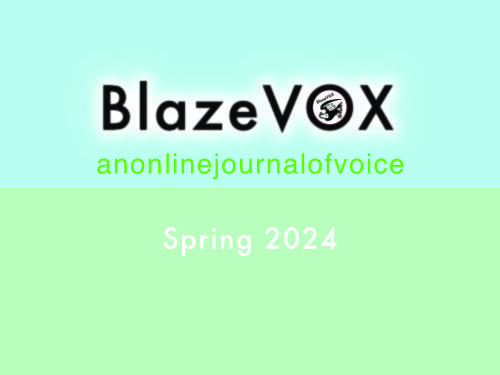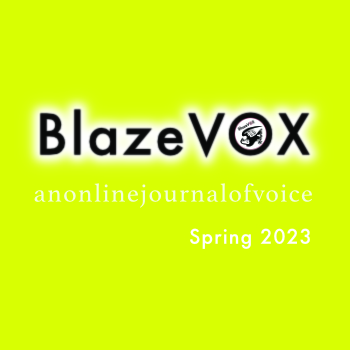IntroductionIntroduction
 Hello and welcome to the Fall issue of BlazeVOX 17. Presenting fine works of poetry, fiction, text art, visual poetry and arresting works of creative non-fiction written by authors from around world. Do have a look through the links below or browse through the whole issue in our Scribd embedded PDF, which you can download for free and take it with you anywhere on any device. Hurray!
Hello and welcome to the Fall issue of BlazeVOX 17. Presenting fine works of poetry, fiction, text art, visual poetry and arresting works of creative non-fiction written by authors from around world. Do have a look through the links below or browse through the whole issue in our Scribd embedded PDF, which you can download for free and take it with you anywhere on any device. Hurray!
In this issue we seek to avoid answers but rather to ask questions. With a subtle minimalistic approach, this issue of BlazeVOX focuses on the idea of ‘public space’ and more specifically on spaces where anyone can do anything at any given moment: the non-private space, the non-privately owned space, space that is economically uninteresting. The works collected feature coincidental, accidental and unexpected connections which make it possible to revise literary history and, even better, to complement it.
Combining unrelated aspects lead to surprising analogies these piece appear as dreamlike images in which fiction and reality meet, well-known tropes merge, meanings shift, past and present fuse. Time and memory always play a key role. In a search for new methods to ‘read the city’, the texts reference post-colonial theory as well as the avant-garde or the post-modern and the left-wing democratic movement as a form of resistance against the logic of the capitalist market system.
Many of the works are about contact with architecture and basic living elements. Energy (heat, light, water), space and landscape are examined in less obvious ways and sometimes developed in absurd ways. By creating situations and breaking the passivity of the spectator, he tries to develop forms that do not follow logical criteria, but are based only on subjective associations and formal parallels, which incite the viewer to make new personal associations. These pieces demonstrate how life extends beyond its own subjective limits and often tells a story about the effects of global cultural interaction over the latter half of the twentieth century. It challenges the binaries we continually reconstruct between Self and Other, between our own ‘cannibal’ and ‘civilized’ selves. Enjoy!
Rockets! Geoffrey Gatza, editor
Zinnia Plentitude Bracing for Impact
Sacha Archer Speech Bubble Collages
hiromi suzuki purification
BlazeVOX17 – Fall 2017 Full Issue
New & Forthcoming from BlazeVOX books



Comments (0)